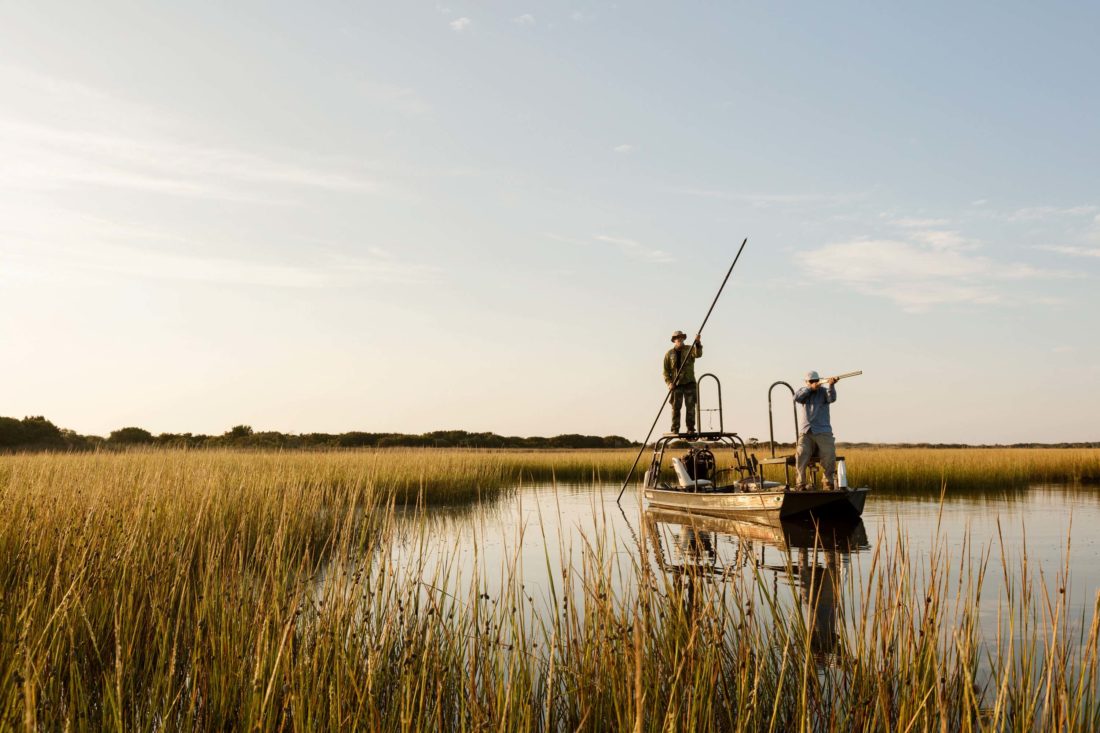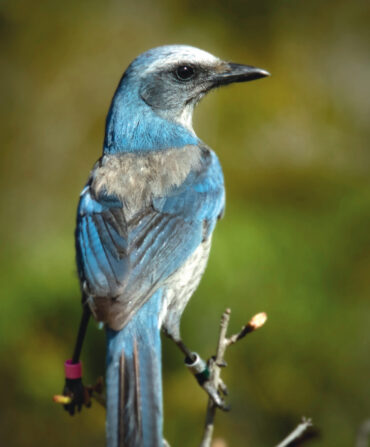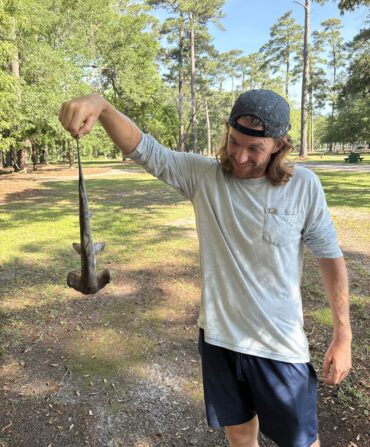Daybreak, no wind, me and Travers on the end of the dock, eyeing the flood tide, rising now to brimming full, only the very tips of spartina canes showing above the water, like the faintest green and golden fuzz upon a mirror of the sky. Little jewel cedar marshland hummocks set here and there, like emeralds in a fine filigree of creeks and rivulets, stretching off toward Savannah and beyond.
This land I love on the new moon. Indians called the moons as they would, the Geese-Going Moon, or the Green Corn Moon, dependent on the run of the seasons. Here in the South Carolina Lowcountry, we do the same. As fall arrives, so too do the Marsh Hen Moons, with a season off and on till early December, new moons and full, Marsh Hen Moons all.
The marsh hen, the clapper rail, Rallus crepitans, is a bird of tidal marshes from New York to down around Florida, into the Gulf Coast and Caribbean. At low tide, you may hear them cackle but never see them. On a normal high tide, you might catch a fleeting glimpse. But in the great rush of full- and new-moon water, they hunker in what little cover they find, smallish clumps of spartina and black needlerush. Two hunters in a light skiff, one with the gun, the other at the oars or push pole, no mechanical propulsion allowed, not even a sail. Nose the skiff into the scant cover, and the birds erupt cackling and flapping like pheasant on Xanax. You can get by without a dog, but add a Lab or a Boykin to the boat for retrieving duty and you’ll be glad you have one.
“Train up a child in the way he should go,” the Good Book says, “and when he is old, he will not depart from it.” Brothers and sisters, I may have strayed, seduced by Argentine doves and sullied by spur-winged geese along the Great Zambezi. My vest has hung sinfully heavy with Georgia quail, and I blush to mention the ruffed grouse upon the hills of Minnesota, where the rippling waters fall. But I kept to my raisings. And now, long in the tooth and short on time, a bit wobbly in walk, I was fixing to get after those humble birds again.
Travers. I had hollered him up. He was an outfitter on Hilton Head—live bait, deep-sea rods and reels, plus some mighty fine shotguns.
“Hey Travers, we got us a new moon coming. Let’s get after some marsh hens!”
“Marsh hens? I haven’t done that in years. What shall I bring?”
“You got a .410?”
He did.
“Bring it. And snag some shells, seven and a half shot. I’m running low.”
He had a .410 indeed, an eye-popping L. C. Smith. Single trigger, ejectors, swirly walnut, swirlier engraving with gold inlays, one of the highest grades. If you want to ask what it might be worth, you really don’t need to know.
“Uh, Travers, maybe we ought to leave this in the house? I’d hate to go swimming with it.”
“I’d hate to go swimming after it. Maybe you’re right.”
I slid it under my bed and came back with my own .410, a Common As Dirt–grade Ithaca, and we cast off and headed for the birds. We’d have a couple of hours of good gunning before the falling water drove us out of the marsh.
So this is how I came up. Pappy built docks and seawalls and bridges for a living. He cussed the wind and he cussed the tides and he cussed his deckhands, whom he dearly loved. When he used up all the cuss words in English, he learned a little Yiddish so he could keep cussing and not repeat himself. Come weekends, Pappy was about cussed down to nothing, and you could not get him into a fishing boat or a gunning skiff for a salary. He’d spring me from school for a couple of deer drives each season, grand affairs with double guns, buckshot, horses and hounds, and extravagant field lunches under the spreading oaks, where deer were quartered and lots were drawn so everybody went home with meat. But the wing shooting I had to learn all by myself. And marsh hens made some fine schooling—lazy fliers with a generous bag limit, and the shot-slap on the water made misses easy to correct.
Lean times we ate them ’cause we had to. Though not reputed as fine table fare, they can be made right enjoyable. Soak overnight in salt water, the second night in buttermilk, dredge ’em in seasoned flour, fry ’em up in bacon drizzlings, simmer ’em in black pepper gravy till the meat falls off the bones, and serve over steamed rice or mashed potatoes.
In fatter days they were like the flatbread and bitter herbs of Passover, like the collards and hoppin’ John on New Year’s Day, without which the cow and well might run dry, the chickens might stop laying. You ate them because you were supposed to and claimed to like them, even if you did not.
Across the river and into the marsh flats, Travers swapped oars for a push pole, the same kind the catch-and-release sports use for tailing redfish. There’s a rhythm to it. Get it right and you can make a light skiff throw a wake. Into the first clump, nothing, but out the other side, birds took flight from a floating rick of dead spartina. I doubled, two shots, two birds. I took the pole, he took the gun, and we found the next birds. They blew out from under scrub palmettos on the flooded edge of a brushy hummock, another double.
And so it went.
Fifteen birds into it, the sun was way up the east and the tide dropping fast. Travers wiped his brow, leaving a broad stripe of mud across his forehead. “How many of these things you want to clean?”
“I reckon we got enough,” I said. “No sense in being hoggish.”
“I damn sure don’t want to get stuck out here till
the evening flood.”
“Time and tide wait for no man,” I said.
Back on the dock, the ocean-bound water gurgling around the pilings, I fetched up two buckets, filled one with seawater. We skinned and gutted the birds, butchered birds into the bucket of water, feathers and entrails into the other. A couple of crab pots out there, rusty but serviceable. I loaded the bait baskets with the shuckings, and the pots hit the water with a satisfying hiss. Few blue crabs off my dock, but the stone crabs were as plentiful as the birds. If a man goes hungry round here, it’s his own fault. Duck season was coming up and deer season just opened, but it was still too buggy to get in the woods.
“How many of these birds you want?” I asked.
“You keep ’em,” he said, “but I’ll come by tomorrow for some crab.”
“You got it!”
We shook hands, both of ours pretty well smeared up by then. “And don’t forget that shotgun.”
He didn’t.








